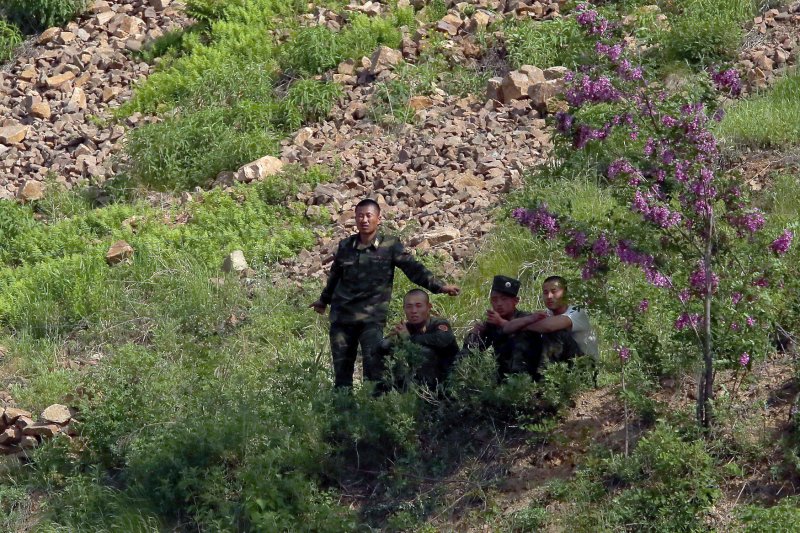North Korean soldiers sit in the shade near the North Korean city Sinuiju. A source in the country said hundreds of border guards are either dead of missing after floods damaged their sleeping quarters. Photo by Stephen Shaver/UPI |
License Photo
SEOUL, Sept. 23 (UPI) -- Floods North Korea has described as "catastrophic" and the worst since the end of World War II may have led to the deaths of border guards – but Pyongyang authorities may have been more preoccupied with finding ammunition swept away by the deluge.
A source in North Hamgyong Province told South Korean news service Daily NK hundreds of border guards are either dead or missing.
The deaths occurred near the Tumen River and in the border town of Yonan, according to the source.
Soldiers sleeping in their wards, located along the banks of the river, may have been swept away by the strong currents of the Tumen as floods devastated the region.
The source said the "Musan Battalion" and the "Namyang Battalion" of the Hambuk 27th Brigade were the most critically affected because their base was 20 meters away from the Tumen River.
Authorities in the North Korean capital dispatched officers and troops to the area, but the officers "were more concerned with recovering missing ammunitions and weapons" that had been washed away, according to the source.
Local residents have slammed the rescue efforts, saying state officials are "paying no attention to" the recovery of missing persons and casualties.
On Friday, North Korea did not issue any reports about damages that have had an impact on the military.
Workers' Party newspaper Rodong Sinmun instead issued a statement on the progress made in recovering communication lines due to mass mobilization efforts.
"Telecommunications and broadcasting networks at 50 locations have been recovered," the Rodong stated.
But North Korea may also be seeking a response from the outside.
A North Korean online outlet recently claimed Pyongyang provided South Korea with flood recovery aid in September 1959, South Korea's YTN reported Friday.
The North Korean statement also said 800,000 South Koreans were forced out of their homes and Pyongyang sent material support.
Seoul's unification ministry confirmed North Korea did offer flood assistance but was turned down at the time. Seoul also said the message did not appear to be a call for assistance, according to YTN.















